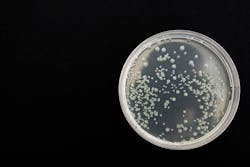CDC Confirms Second Death Caused by Rare Bacterial Disease
The Centers for Disease Control and Prevention (CDC) confirmed a new fatal case of the rare disease melioidosis in Georgia.
This case is linked to three previous cases in Kansas, Texas and Minnesota, which include adults and children. Two of the four patients had no known risk factors for melioidosis and the other two died, reported CDC.
According to CDC, whole genome sequencing shows the bacterial strains that sickened the patients closely match each other. The bacteria usually is found in moist soil and water, and in rare cases has also been found to contaminate wet or moist products in the areas where the bacteria are common.
CDC collected and tested more than 100 samples from products, soil, and water in and around the patients’ homes. No samples have tested positive for the bacteria Burkholderia pseudomallei, which causes melioidosis.
According to CDC, the center believes the most likely cause is an imported product (such as a food or drink, personal care or cleaning products or medicine) or an ingredient in one of such products.
The bacteria appear most closely related to strains found in Asia, particularly South Asia, but none of the patients traveled internationally.
CDC has asked clinicians to watch for any acute bacterial infection that does not respond to normal antibiotics and consider melioidosis.
Healthy people may get melioidosis and underlying medical conditions may increase the risk of disease, added CDC. So major risk factors are diabetes, liver or kidney disease, chronic lung disease, cancer or another condition that weakens the immune system.
Children who get melioidosis generally do not have risk factors. People experiencing cough, chest pain, high fever, headache or unexplained weight loss should see their doctor.
More information on melioidosis can be found here.
